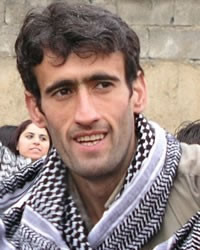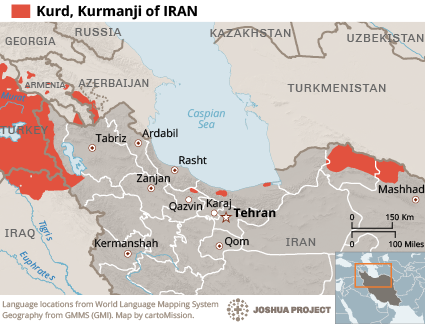The Kurds are the largest people group without their own homeland. They are spread across the towering mountains and barren plains of Turkey, Iran, Syria and Iraq. This oil-rich area is known as Kurdistan. The Kurds of Iran live in the most rugged part of Kurdistan along the Turkey-Iran border. In Iran, the Kurmanji speaking Kurds are a smaller group than those who speak other Kurdish dialects.
The Iranian government violently suppresses any sign of Kurdish separatism.
Kurds are Muslims. It is not as central to their identity as it is for Arabs.
Iran is very closed to Christian evangelism. It will take people who are wise as serpents and harmless as doves to reach the Kurds there. However, there are many Christian materials in their language, and nearby Iraq has a Kurdish Christian community.
Pray the Lord would lead Azerbaijani and Iranian believers to build friendships with Kurds and tell them about the savior.
Pray that God would create a hunger for the Bible and spiritual truth in the hearts of the Kurdish living in Iran.
Ask God to raise up Kurdish disciples who will make more disciples in Iran and Azerbaijan.
Scripture Prayers for the Kurd, Kurmanji in Iran.
| Profile Source: Joshua Project |












